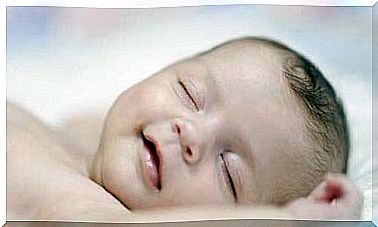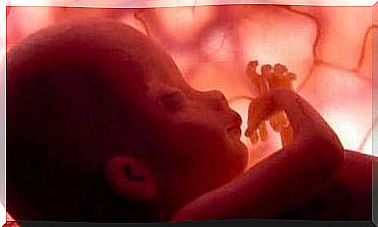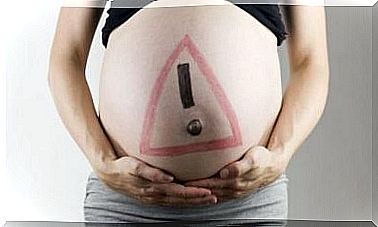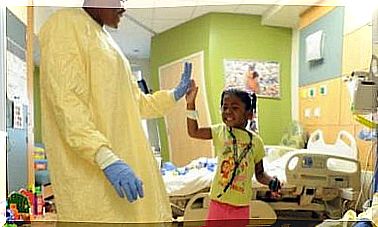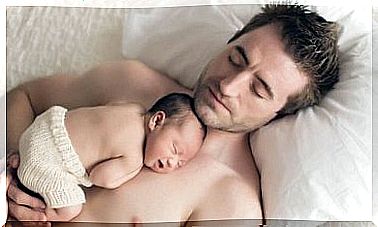Autism: Definition, Causes And Symptoms

It is a complex neurological disorder, the symptoms of which occur in childhood and which one can suffer from throughout life. Autism, or Autism Spectrum Disorder (ASD), is a condition that impairs communication and social skills, which also affects the child’s learning and adaptation process.
Symptoms of this neurological condition can range from mild to very severe and be very diverse. Typically, however, people with this disorder may have various communication problems and often do not look in the eye while speaking, have very limited interests and repetitive behaviors that include spending a lot of time tidying up certain objects or repeating the same sentence almost incessantly .
The person suffering from autism seems to “live in their own world”; for this reason it is often the parents who first notice the problem. They note uncommon behavior, as well as failure to achieve normal childhood developmental milestones.
Some parents claim to have noticed a certain difference from birth to other children, while others claim that their children were growing normally, but then they lost certain abilities . It is very important to pay attention to the baby’s developmental signs and ask for help if in doubt.
Causes of Autism in Children
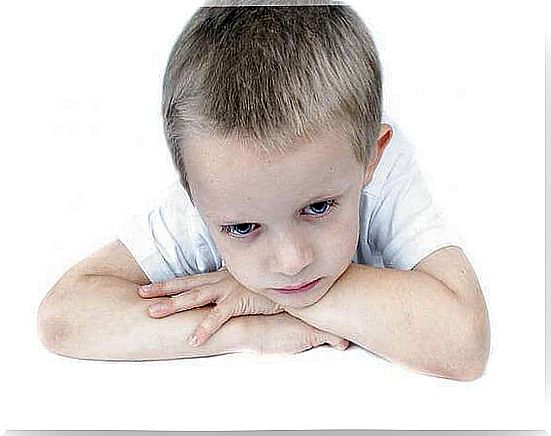
Even today, the underlying causes of this complex neurological disorder are unknown, but it is possible that the genetic and environmental factors affect the disease.
Some researchers have found that certain genes are related to the development of autism. There are also studies on people with autism that show irregularities in different brain areas.
This disorder affects people of any race, culture or socioeconomic level, although the incidence in males is four times higher than in females. Statistics reveal that 5 out of 10,000 people worldwide suffer from classic autism.
Symptoms that can facilitate diagnosis
Early indicators:
- After the first year, the child does not stammer any words.
- It does not indicate any object up to 12 months.
- He doesn’t respond to his name.
- He does not speak words until he is 16 months, or sentences of two or more words until he is about two years old.
- Doesn’t make proper eye contact.
- Over-align toys or other objects.
- He does not smile or show social receptivity.
Late indicators
- He is not interested in having friends.
- He is unable to initiate or maintain a conversation.
- He is not very creative when playing.
- Use repetitive language.
- He has precise routines and any attempt to modify them causes distress.
- Show extreme attachment to certain objects.

An early diagnosis of autism guarantees timely intervention
As in most cases where health is at stake, early diagnosis impacts appropriate intervention for the child, who can benefit from the various existing therapies and from a suitable educational environment. If he is treated for at least two years during the preschool stage, he can achieve significant improvements.
Most therapies focus on developing communication, social and cognitive skills. Many are positive and although there are no fully effective treatments so far, an adequate educational environment improves symptoms, so it is essential that parents bring the child to therapy as soon as possible.
Autism spectrum disorders, which include Asperger’s syndrome and generalized developmental disorder not otherwise specified, can be diagnosed when the child is 3 years old; however, some research advances the age of diagnosis to 6 months.
If you suspect that your children may be suffering from this disorder, the ideal is to have them undergo a general evaluation by a psychologist, a neurologist, a psychiatrist and a speech therapist, along with other specialists capable of diagnosing autism.
The diagnosis process also includes a parental questionnaire which seeks to gather as much information as possible about the child’s behavior and development. Parents who suspect their children have autism should definitely take them to a specialist or pediatrician. The best thing they can do for their little ones is get an early diagnosis to help them.

